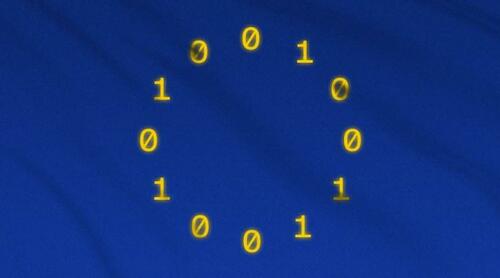Concerns over the potential misuse of AI have prompted the U.S., U.K., China and the G7 to speed up regulation of the technology, but Europe is already ahead.
European Union policymakers agreed Friday on a comprehensive regulation for artificial intelligence, the AI Act.
This makes the EU the first governing body to pass AI legislation of the sort.
The deal was struck following a nearly 24-hour debate on Dec. 8 and 15 hours of negotiations after that.
As CoinTelegraph's Amaka Nwaokocha reports, the agreement covers the governmental use of AI in biometric surveillance, how to regulate AI systems such as ChatGPT, and the transparency rules to follow before market entry.
This covers technical documents, adherence to European Union copyright and sharing training content summaries.
The agreement stipulates that AI models with significant impact and systemic risks must evaluate and address those risks, perform adversarial testing for system resilience, report incidents to the European Commission, ensure cybersecurity and disclose energy efficiency.
“Correct implementation will be essential - the Parliament will keep a close eye on supporting new business ideas with sandboxes and effective rules for the most powerful models.”
After the deal was made, European Commissioner for Internal Market Thierry Breton posted on X:
The deal forbids cognitive behavioral manipulation, scraping facial images from the internet or CCTV footage, social scoring and biometric systems inferring personal details like beliefs and orientation.
Consumers would have the right to file complaints and get explanations.
Fines for violations would range from 7.5 million euros ($8.1 million) or 1.5% of turnover up to 35 million euros ($37.7 million) or 7% of global turnover, depending on the infringement and size of the company.
The new law still needs to be approved by the European Parliament, though that should be a formality.
However, as NYTimes reports, even as the law was hailed as a regulatory breakthrough, questions remained about how effective it would be. Many aspects of the policy were not expected to take effect for 12 to 24 months, a considerable length of time for A.I. development.
And finally, enforcement remains unclear. The A.I. Act will involve regulators across 27 nations and require hiring new experts at a time when government budgets are tight. Legal challenges are likely as companies test the novel rules in court. Previous E.U. legislation, including the landmark digital privacy law known as the General Data Protection Regulation, has been criticized for being unevenly enforced.

